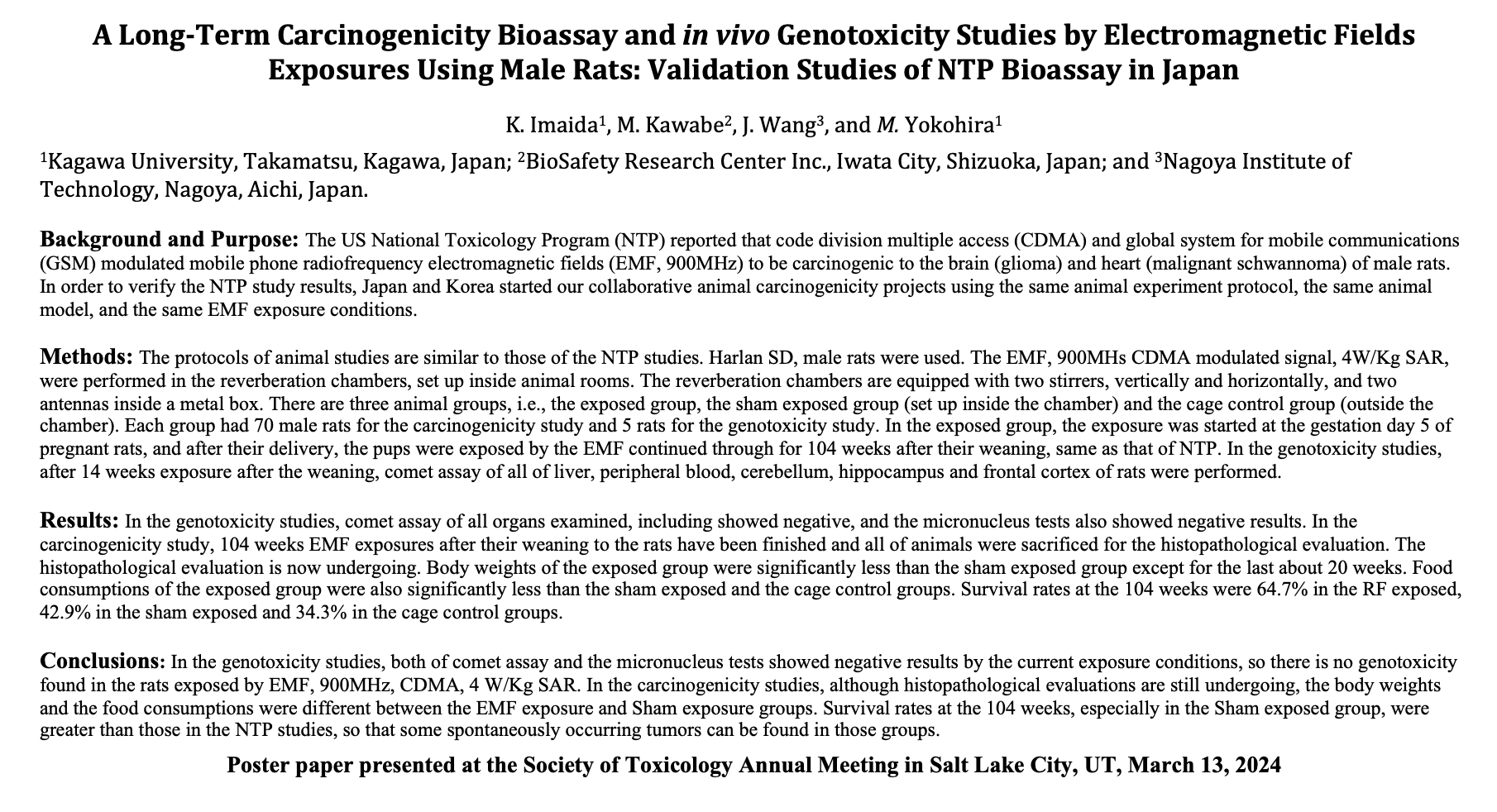“NTP Lite”: Update from Japan
Prof. Katsumi Imaida To Present at Tox Meeting in Utah
The Japanese group running a partial repeat of the NTP RF cancer study has not observed genotoxic effects among male rats exposed to 900 MHz CDMA radiation at 4 W/Kg, according to a paper to be presented tomorrow at the annual meeting of the Society of Toxicology in Salt Lake City, UT (SOT2024).
The genotox studies were carried out following 14 weeks of RF exposure.
The analysis of the cancer data is ongoing and will not be reported.
Among the long-term results reported by the Japanese team:
• Body weights and food consumption of the exposed rats were significantly different from the controls.
• After two years, more of both the exposed and control rats in Japan had survived than in the NTP experiment. This was “especially” noteworthy for the controls.
Professor Katsumi Imaida of Kagawa University in Takamatsu, the lead author of the paper, is scheduled to present these results at the SOT meeting. They are essentially the same as those he presented at the BioEM2023 meeting last June in Oxford, England.
A parallel project is also ongoing in Korea and the data from each will be pooled to improve the statistical reliability of the results. The Japanese/Korean animal study is a scaled-down repeat of the $30 million study by the U.S. National Toxicology Program (NTP), which found clear evidence that RF radiation can cause cancer. The Asian study has been dubbed “NTP Lite”. The project is being called a “validation” study.
In contrast to the Japanese findings, the NTP team did see DNA breaks (NTP paper here). Both U.S. and the Japanese groups used the comet assay, developed by N.P. Singh.
Last June, Young Hwan Ahn, the leader of the Korean project team, presented his own status report at a private briefing for the WHO EMF Project in Geneva. At the time, he revealed that the Korean genotox experiments had to be delayed due to the unexpected death of four RF-exposed rats early in the two-year experiment.
For more on the joint Japanese/Korean project, see Ahn and Imaida’s 2022 paper in Bioelectromagnetics (open access).
Members of the project’s international advisory committee are: Alexander Lerchl, Michael Repacholi, Emilie van Deventer, Eric van Rongen, Vijayalaxmi, Joe Wiart and Michael Wyde.
_____________________________
Prof. K. Imaida’s Poster Paper at SOT 2024 in Utah, March 13, 2024
 Click to enlarge.
Click to enlarge.
